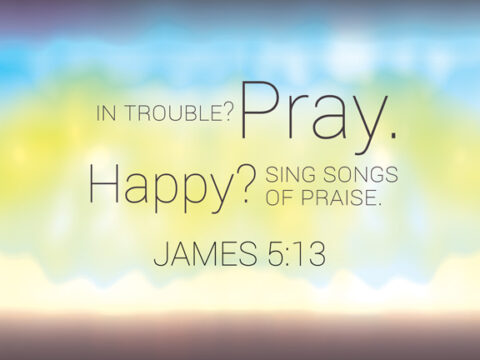During this time of the year, you may want to consider giving your time and resources to help those in need. It’s a wonderful way to help the Lord’s Children and to give Him praise. The following are some of the ways that you can do so.
Matthew Chapter 6: 1 – 21
6 “Be careful not to practice your righteousness in front of others to be seen by them. If you do, you will have no reward from your Father in heaven.
2 “So when you give to the needy, do not announce it with trumpets, as the hypocrites do in the synagogues and on the streets, to be honored by others. Truly I tell you, they have received their reward in full. 3 But when you give to the needy, do not let your left hand know what your right hand is doing, 4 so that your giving may be in secret. Then your Father, who sees what is done in secret, will reward you.
5 “And when you pray, do not be like the hypocrites, for they love to pray standing in the synagogues and on the street corners to be seen by others. Truly I tell you, they have received their reward in full. 6 But when you pray, go into your room, close the door and pray to your Father, who is unseen. Then your Father, who sees what is done in secret, will reward you. 7 And when you pray, do not keep on babbling like pagans, for they think they will be heard because of their many words. 8 Do not be like them, for your Father knows what you need before you ask him.
9 “This, then, is how you should pray:
“‘Our Father in heaven,
hallowed be your name,
10 your kingdom come,
your will be done,
on earth as it is in heaven.
11 Give us today our daily bread.
12 And forgive us our debts,
as we also have forgiven our debtors.
13 And lead us not into temptation,[a]
but deliver us from the evil one.[b]’
14 For if you forgive other people when they sin against you, your heavenly Father will also forgive you. 15 But if you do not forgive others their sins, your Father will not forgive your sins.
16 “When you fast, do not look somber as the hypocrites do, for they disfigure their faces to show others they are fasting. Truly I tell you, they have received their reward in full. 17 But when you fast, put oil on your head and wash your face, 18 so that it will not be obvious to others that you are fasting, but only to your Father, who is unseen; and your Father, who sees what is done in secret, will reward you.
19 “Do not store up for yourselves treasures on earth, where moths and vermin destroy, and where thieves break in and steal. 20 But store up for yourselves treasures in heaven, where moths and vermin do not destroy, and where thieves do not break in and steal. 21 For where your treasure is, there your heart will be also.
Almsgiving
During the first century, almsgiving was a weekly Jewish practice of giving to the poor. It was also an important part of the Jewish religion. During this time, all who could afford to give were encouraged to do so.
The practice of almsgiving is discussed in several passages of the Bible. In the Sermon on the Mount, Jesus condemns hypocrisy in giving. Specifically, he speaks against the practice of giving to the poor for the glory of man. He also warns against fasting.
In this chapter, Jesus talks about the practice of almsgiving, prayer, and righteousness. In the first section, he explains that prayer is a form of righteousness. In the second section, he explains that prayer is not to be performed for man’s approval. He also talks about the rewards that are received for prayer.
In the third section, he speaks about the practice of giving to the poor. He teaches that giving to the poor should be done with pure motives of concern for the poor.
Prayer
During Jesus’ time in Jerusalem, a number of Rabbis were attempting to perfect the art of prayer. They ranked prayer amongst the highest of all religious activities. In fact, Rabbis claimed prayer was the most powerful of all good works. They arrogantly regretted that they couldn’t devote all day to prayer. That’s just how much more Religious and Pious they were then the congregation, and other Rabbis. Reminds me of who is the Greatest among Us. Matthew 23:11
The first and most obvious thing to do is to set aside a time and place for prayer. This may involve a formal schedule or a prayer in one’s heart. It may even involve praying aloud, or in the presence of others.
The next logical step is to focus on the content of your prayers. You can do this by asking for God’s guidance. If you do this, you will be rewarded. If you do not, you will have to suffer the consequences.
The next logical step is to determine whether you are praying in the right place and in the right manner. You may not have a lot of time to spare, so you can either take a few minutes to pray aloud, or a few minutes to read your Bible.
Fasting
During Jesus’ time, fasting was a very important part of piety. It was a way of expressing dependence on God. It was also a way of drawing attention to a worthwhile cause.
But fasting was corrupted by the religious people of Jesus’ day. They made it a spectacle, and the Bible gives us a few examples of this.
Besides praying, fasting was also one of the abused religious practices of Israel. People would fast for a variety of reasons, from being sick to approaching danger. They would abstain from food for a day or two, usually to focus on prayer.
While this is the most important reason to fast, there are other reasons to do it. Some people might even fast as part of their confession. However, fasting is only a good idea if it is done correctly. If you fast without prayer, it will have no spiritual value. Besides, fasting is only appropriate for certain times.






